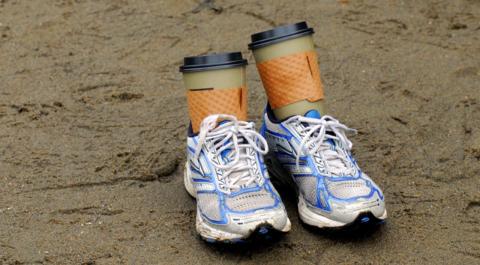
Caffeine is a well-known performance enhancer for athletes, providing that extra boost of energy during workouts and races. However, it has its limitations and should not be relied upon as a substitute for proper fueling and nutrition. Here’s a guide to help you find your optimal caffeine dose and understand its role in your training and racing regimen.
Caffeine, a natural stimulant found in coffee, tea, and various energy drinks, can have several benefits for athletes, including:

Finding the right amount of caffeine for your needs involves a bit of trial and error, as individual tolerance can vary. Here’s how to determine your optimal dose:
**1. Start with Recommended Dosages: For most athletes, a dose of 3-6 mg of caffeine per kilogram of body weight is effective. For a 70 kg (154 lbs) athlete, this equates to 210-420 mg of caffeine. Start on the lower end to assess tolerance.
**2. Test During Training: Use your training sessions to experiment with different caffeine doses and timing. This helps you determine what works best for you without the pressure of race day.
**3. Monitor Effects: Pay attention to how caffeine affects your performance and how your body reacts. Look for improvements in endurance, focus, and overall comfort, but also be mindful of potential side effects like jitteriness, digestive issues, or sleep disturbances.
**4. Adjust Timing: The timing of caffeine intake can also affect its efficacy. Consuming caffeine about 30-60 minutes before your workout or race is generally recommended for optimal results.
While caffeine can provide a performance boost, it is not a cure-all and shouldn’t be relied upon to compensate for poor nutrition or hydration. Here’s why:
**1. Fueling Needs: Proper fueling with carbohydrates, proteins, and fats is essential for sustaining energy levels during prolonged exercise. Caffeine cannot replace the necessary nutrients your body needs for optimal performance and recovery.
**2. Hydration: Caffeine has mild diuretic properties, which can lead to increased fluid loss. It’s crucial to maintain proper hydration through adequate water and electrolyte intake, especially during long or intense exercise sessions.
**3. Individual Variation: Caffeine affects everyone differently. What works for one person may not work for another, and some individuals may experience adverse effects even at lower doses.
**4. Tolerance and Dependence: Over-reliance on caffeine can lead to tolerance, where its effects diminish over time. Additionally, dependence on caffeine for energy can hinder your ability to perform well without it.

**1. Combine with Proper Nutrition: Use caffeine as part of a balanced approach to training that includes proper nutrition and hydration. Ensure you’re fueling adequately before and during exercise.
**2. Cycle Caffeine Intake: Avoid consuming caffeine excessively or daily to prevent tolerance buildup. Consider cycling your caffeine use to maintain its effectiveness.
**3. Choose the Right Sources: Opt for natural sources like coffee or tea, and be cautious with energy drinks and supplements that may contain excessive amounts of caffeine or added sugars.
**4. Stay Attuned to Your Body: Listen to your body’s signals and adjust your caffeine intake based on how you feel and your performance results.
Caffeine can be a valuable tool for enhancing performance, but it’s important to use it wisely and in conjunction with proper fueling strategies. By determining your optimal dose and understanding the limits of caffeine, you can maximize its benefits while ensuring that your overall nutrition and hydration needs are met. Remember, caffeine is just one piece of the puzzle in your training and racing strategy.
Discover More Content





